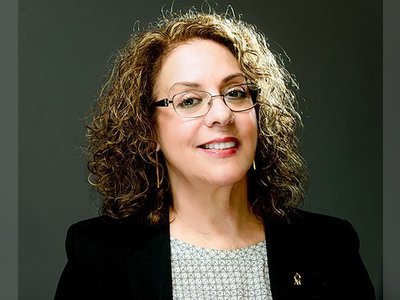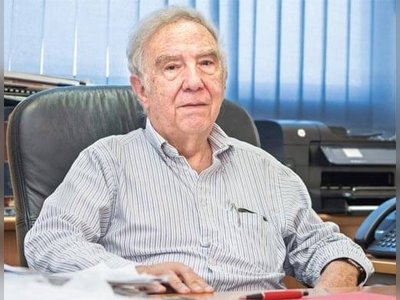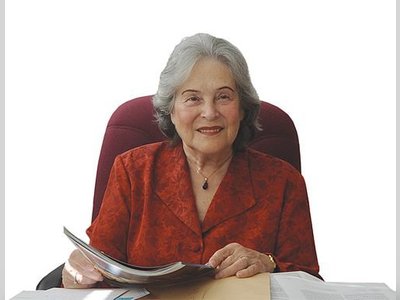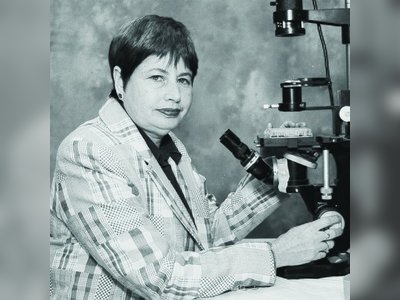מורשת גדולי האומה
בזכותם קיים
beta
Victor Emil Frankl: A Life of Meaning Amidst Adversity
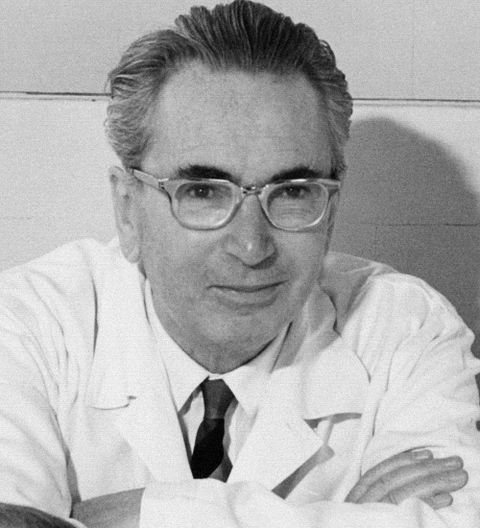
Victor Emil Frankl, born on March 26, 1905, in Vienna, Austria, was a Jewish neurologist and psychiatrist. He is best known as the founder of logotherapy and the existential analysis method, which is considered the third Viennese school of psychotherapy after Sigmund Freud's psychoanalysis and Alfred Adler's individual psychology.
In his seminal work titled "Man's Search for Meaning," first published in 1946 and selling over nine million copies, Frankl documented his experiences as a prisoner in Nazi concentration camps. He also outlined his psychotherapeutic approach to finding meaning in life. Frankl, associated with the humanistic psychology movement, is considered a trailblazer in using existentialism as a tool in psychotherapy.
Frankl was born to Jewish parents, Elsa and Gabriel, in Vienna, Austria, in a family of three children. From a young age, he grappled with the question of whether the adversities of life could destroy its meaning. However, he concluded that nothing from the past is truly lost. While in high school, he aspired to become a doctor and, influenced by psychoanalysis, began to take an interest in psychiatry. Thanks to his talent for observation, he believed that, as a psychiatrist, he could see beyond people's weaknesses and recognize the possibilities available to them to overcome these weaknesses.
Frankl completed his medical studies and earned a doctorate in medicine in 1930. In 1924, his first article was published with the encouragement of Freud. He served as a professor of neurology and psychiatry at the Vienna Medical School. From 1940 to 1942, he was the head of the neurological department at Rothschild Hospital. In 1941, he married Tilly Grosser, who perished in the Holocaust. On September 25, 1942, Frankl, along with his wife and parents, was transferred to the Theresienstadt concentration camp. On October 19, 1944, Frankl and his wife were further transported to the Auschwitz extermination camp. On October 25 of that same year, he was moved to the Kaufering concentration camp, where he worked for five months in forced labor. In March 1945, Frankl was transferred to another subcamp, Dachau, where he served as a doctor until April 27, 1945, when the camp was liberated. Most of his family perished in the Holocaust. After the war, he completed a doctorate in philosophy in 1949. Between 1946 and 1970, he directed the neurological clinic in Vienna.
Frankl served as a visiting professor at universities including Harvard, Pittsburgh, San Diego, and Dallas. The American International University in California established a special chair for the study of logotherapy, the psychotherapeutic method developed by Frankl.
In 1947, Frankl married Eleonore Katharina Schwindt, and they had a daughter named Gabriele, who later became a child psychologist. Throughout his life, Frankl authored 32 books, published in 32 languages (five of his works were translated into Hebrew), and lectured at 209 universities across all five continents.
Frankl received 29 honorary doctorates from universities worldwide. He was an honorary member of the Austrian Academy of Sciences and held a mountain guide's certificate in the Alpine Club, with three climbing routes named in his honor. In 1975, he was granted honorary citizenship of his hometown, Vienna, where he passed away in 1997.
During the Holocaust, although Frankl had the opportunity to leave Vienna for the United States after receiving an entry permit, he chose to stay and protect his parents. In his book "Man's Search for Meaning," he described how a chance encounter with the Ten Commandments, found by his father in the morning when receiving the entry permit, convinced him to stay and fulfill the duty of honoring his parents by being with them.
Later, Frankl was sent to the Theresienstadt ghetto by the Nazis and then to the Auschwitz extermination camp. In Theresienstadt, he worked as a general practitioner at the camp's infirmary until his skills in psychotherapy were recognized, leading to his establishment of a specialized unit to help newcomers cope with the initial shock of arrival. He later created a unit to prevent suicides among prisoners. However, for most of his time in the concentration camp, he was an ordinary inmate, performing physical tasks such as digging and laying railroad tracks.
Frankl survived the Holocaust, but nearly his entire family, except for his sister, perished. His early belief, developed during adolescence, that every individual needs a central purpose in life and must find meaning in their existence to overcome trauma and adversity, sustained him. In his most famous work, "Man's Search for Meaning," Frankl argued that, even in the most dire circumstances, humans remain free in their minds, and no one can take away their inner freedom.
Early Life and Education
Frankl was born to Jewish parents, Elsa and Gabriel, in Vienna, Austria, in a family of three children. From a young age, he grappled with the question of whether the adversities of life could destroy its meaning. However, he concluded that nothing from the past is truly lost. While in high school, he aspired to become a doctor and, influenced by psychoanalysis, began to take an interest in psychiatry. Thanks to his talent for observation, he believed that, as a psychiatrist, he could see beyond people's weaknesses and recognize the possibilities available to them to overcome these weaknesses.
Frankl completed his medical studies and earned a doctorate in medicine in 1930. In 1924, his first article was published with the encouragement of Freud. He served as a professor of neurology and psychiatry at the Vienna Medical School. From 1940 to 1942, he was the head of the neurological department at Rothschild Hospital. In 1941, he married Tilly Grosser, who perished in the Holocaust. On September 25, 1942, Frankl, along with his wife and parents, was transferred to the Theresienstadt concentration camp. On October 19, 1944, Frankl and his wife were further transported to the Auschwitz extermination camp. On October 25 of that same year, he was moved to the Kaufering concentration camp, where he worked for five months in forced labor. In March 1945, Frankl was transferred to another subcamp, Dachau, where he served as a doctor until April 27, 1945, when the camp was liberated. Most of his family perished in the Holocaust. After the war, he completed a doctorate in philosophy in 1949. Between 1946 and 1970, he directed the neurological clinic in Vienna.
Frankl served as a visiting professor at universities including Harvard, Pittsburgh, San Diego, and Dallas. The American International University in California established a special chair for the study of logotherapy, the psychotherapeutic method developed by Frankl.
In 1947, Frankl married Eleonore Katharina Schwindt, and they had a daughter named Gabriele, who later became a child psychologist. Throughout his life, Frankl authored 32 books, published in 32 languages (five of his works were translated into Hebrew), and lectured at 209 universities across all five continents.
Frankl received 29 honorary doctorates from universities worldwide. He was an honorary member of the Austrian Academy of Sciences and held a mountain guide's certificate in the Alpine Club, with three climbing routes named in his honor. In 1975, he was granted honorary citizenship of his hometown, Vienna, where he passed away in 1997.
Surviving the Holocaust
During the Holocaust, although Frankl had the opportunity to leave Vienna for the United States after receiving an entry permit, he chose to stay and protect his parents. In his book "Man's Search for Meaning," he described how a chance encounter with the Ten Commandments, found by his father in the morning when receiving the entry permit, convinced him to stay and fulfill the duty of honoring his parents by being with them.
Later, Frankl was sent to the Theresienstadt ghetto by the Nazis and then to the Auschwitz extermination camp. In Theresienstadt, he worked as a general practitioner at the camp's infirmary until his skills in psychotherapy were recognized, leading to his establishment of a specialized unit to help newcomers cope with the initial shock of arrival. He later created a unit to prevent suicides among prisoners. However, for most of his time in the concentration camp, he was an ordinary inmate, performing physical tasks such as digging and laying railroad tracks.
Frankl survived the Holocaust, but nearly his entire family, except for his sister, perished. His early belief, developed during adolescence, that every individual needs a central purpose in life and must find meaning in their existence to overcome trauma and adversity, sustained him. In his most famous work, "Man's Search for Meaning," Frankl argued that, even in the most dire circumstances, humans remain free in their minds, and no one can take away their inner freedom.
- ויקטור פראנקלhe.wikipedia.org

